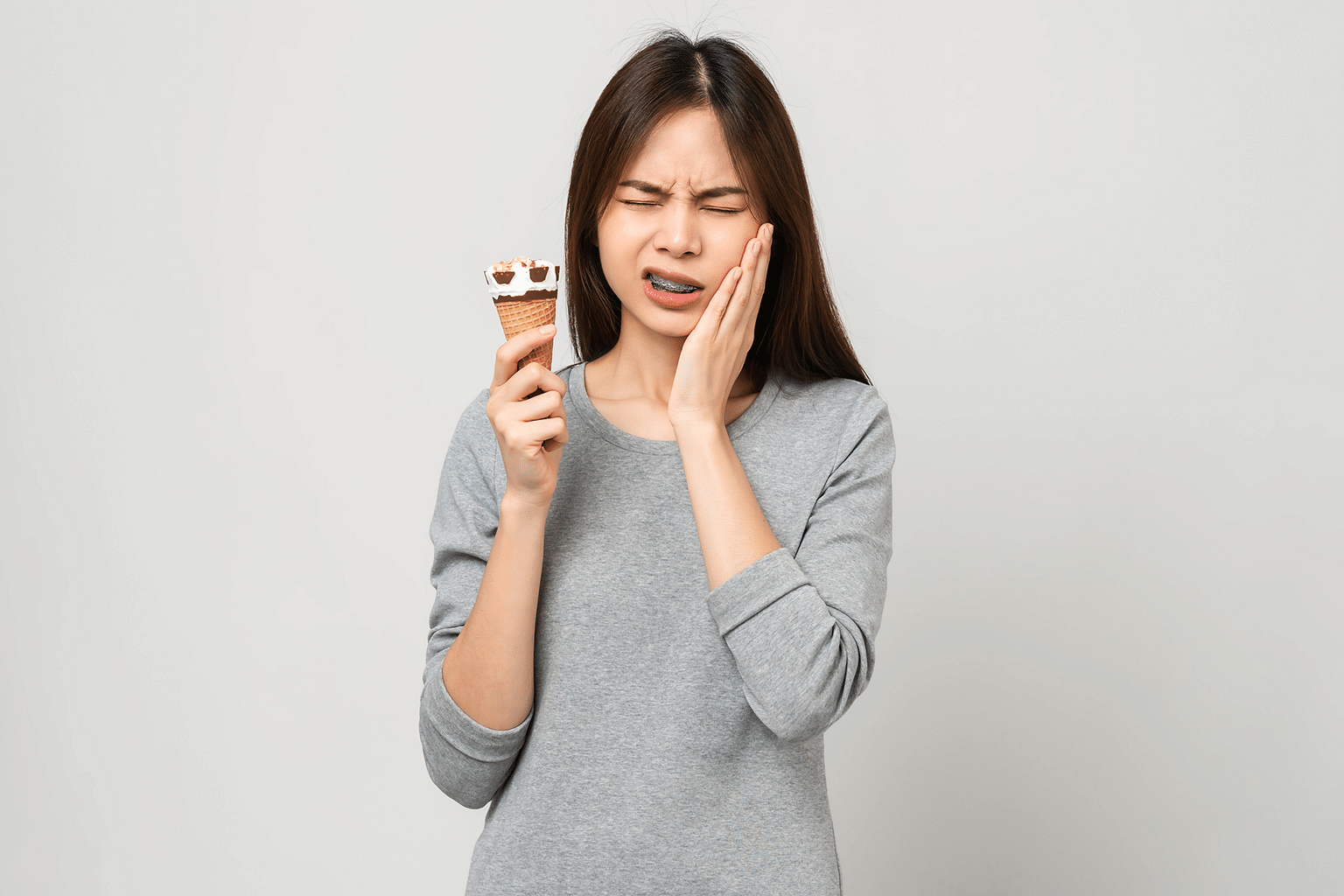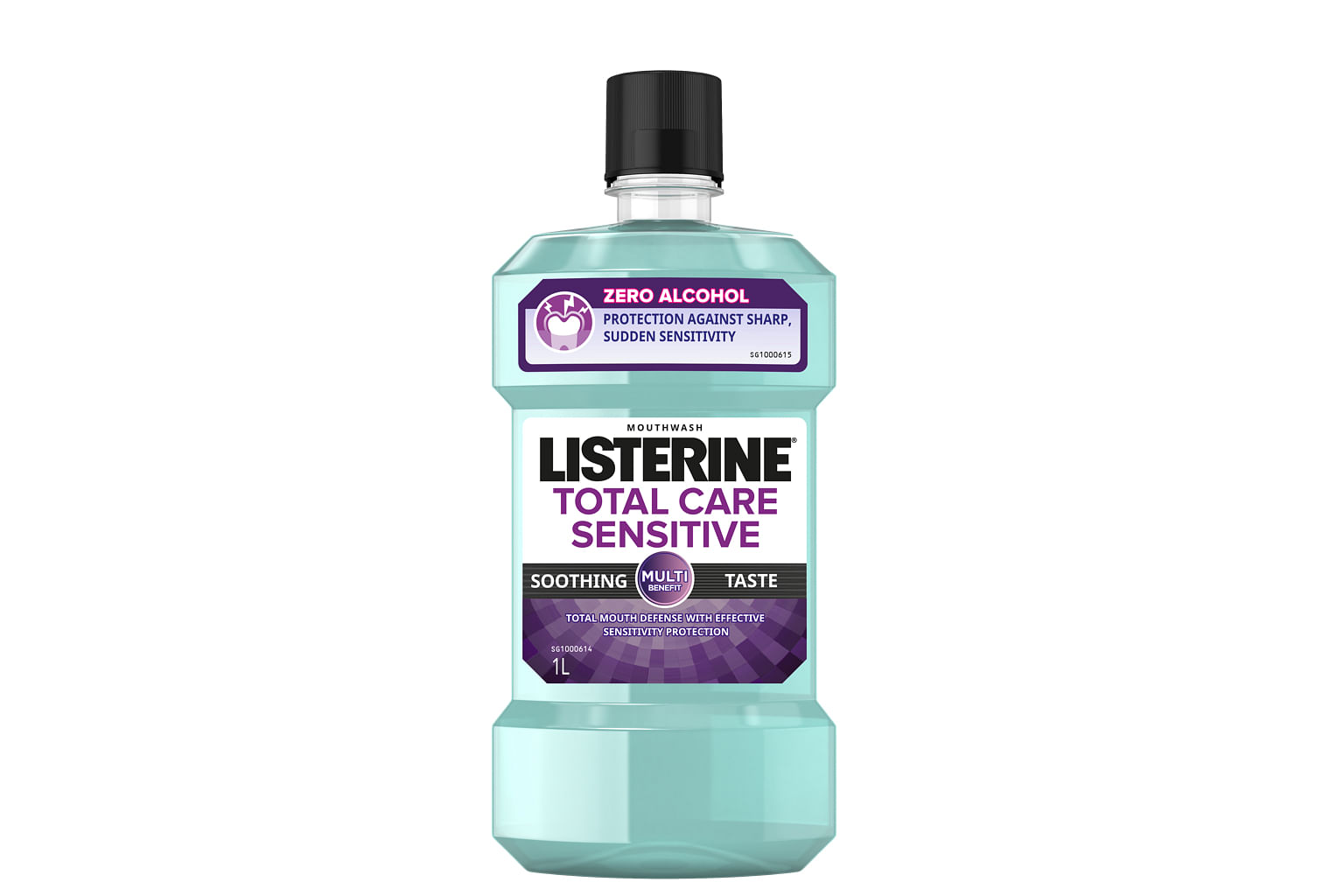BRANDED CONTENT
Sign of sensitive teeth: Sharp sensation when having hot soup or ice-cream
With tooth sensitivity affecting many, periodontist Marlene Teo sheds light on the issue and offers preventive methods

Sensitive teeth can affect anyone even among those who keep to a regular oral care routine.
PHOTO: GETTY IMAGES
Follow topic:
Make no mistake that the sharp zing you felt on your teeth is the result of tooth sensitivity. And this dreadful sensation can happen more often than you would like.
This is akin to a little electric shock when you eat hot or cold foods, or even something sweet or sour, says Dr Marlene Teo, a periodontist at An Dental. She offers tips to ease the symptoms and answers key questions about tooth sensitivity.
Q: Why do I suffer from tooth sensitivity?
Enamel, which is the protective layer of the tooth, may get worn out from tooth grinding or may be eroded by decay. When that happens, dentine, which is the second layer of the tooth, gets exposed. The dentine comprises dentinal tubules with fluid in it. When hot, cold or sweet food and drinks come into contact with the exposed dentinal tubules, the fluid in the tubules move and activate the nerves and pain receptors in the inner tooth material (otherwise known as tooth pulp). Then the brain recognises this as jolts of sensitivity from the teeth.

When choosing a new oral care product, it's advisable to use it for two weeks to assess how effective it is.
PHOTO: GETTY IMAGES
Q: What are the top three misconceptions about having sensitive teeth?
That tooth sensitivity is not serious is one common misconception. The condition is normal and therefore can be ignored is another. Lastly, it is simply a normal consequence of growing old and nothing can be done about it.
Q: Why do receding gums lead to teeth sensitivity?
When our gums recede, dentine tubules are on the tooth root surface. Movement of the fluid in the tubules can irritate the pulp of the tooth, thus leading to tooth sensitivity.
Q: If I brush my teeth regularly and properly, then why should I still use a mouthwash?
It would be great if everyone is meticulous and manages to remove all the plaque in our mouths just by brushing and flossing. Unfortunately, there may still be bacteria hiding in some areas despite our best efforts at maintaining oral health. A suitable mouthwash with antibacterial properties such as one containing essential oils can help reach those nooks and crannies.
If you suffer from tooth sensitivity, a mouthwash with ingredients that are desensitising agents will be helpful. For instance, potassium nitrate can help to dull the nerves in the tooth pulp and alleviate discomfort.
You can also use mouthwash with fluoride in it to re-mineralise enamel that has been softened from tooth decay. Remineralisation refers to the deposition of minerals on damaged areas of the tooth.

When choosing a new oral care product, it's advisable to use it for two weeks to assess how effective it is.
PHOTO: GETTY IMAGES
Q: There are so many sensitivity oral care products and solutions in the market. How do I choose a suitable one?
I would consider the price (is it reasonable?); the brand (is it reputable?); the active ingredients (is there at least one like potassium nitrate, a desensitising agent?); and the clinical studies on the product (do they support its effectiveness?). Better yet if the product offers more than one solution to your oral issues.
For instance, a mouthwash that deals with tooth sensitivity and also helps reduce gum problems and cavities. I would try a new product for two weeks to assess how effective it is at relieving my tooth sensitivity.
Q: What are some of the ways to care for sensitive teeth?
- Use a soft toothbrush to prevent more tooth structure being “scrubbed” away.
- Use a desensitising toothpaste or mouthwash with potassium nitrate. The ingredient can dull the nerves to relieve tooth sensitivity.
- Be aware of your oral habits such as teeth grinding, and try to stop it.
- Watch what you eat. Try to consume less sweet food and sugary drinks.
- Go for regular dental check-ups.

Soothing that sharp ache
Eliminating tooth sensitivity issues has just gotten easier. The Listerine Total Care Sensitive Mouthwash is the first in the brand’s range of oral rinses that targets tooth sensitivity and offers all-day protection from it. Its multi-action formula contains potassium nitrate for desensitising nerves within the tooth, and fluoride for strengthening tooth enamel.

PHOTO: LISTERINE
It also contains essential oils with antibacterial properties to kill 99.9 per cent of germs that cause plaque build-up to help maintain healthy gums. In addition, it has no alcohol content and offers a mild soothing taste to cater to people with sensitive teeth. When used twice daily to complement your existing oral care routine, you can expect reduced tooth sensitivity in as early as seven days*. Available in 250ml and 1,000ml bottle sizes.
* Based on a consumer testing where nine out of 10 users felt less tooth sensitivity throughout the day after using the product for seven days.


